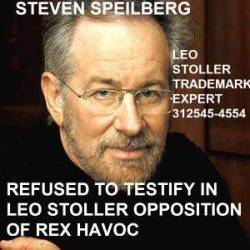
Recently the Northern District of Illinois U.S. Magistrate Judge Jeffrey Cole denied a company's motion for a protective order, rejecting the defendant's assertions that the CEO had no personal knowledge of the claim and was ''too busy'' to give a deposition. Johnson v. Jung, 242 F.R.D. 481 (N.D. Ill. 2007).
In that case the attorneys for the Defendant moved for a protective order barring a President's deposition. In support, the President of the large corporation submitted an affidavit asserting two grounds as good cause for a protective order:
• He ''had no personal involvement'' with the claims in the suit.
• He was too busy to sit for a deposition because he travels
In considering the motion, Judge Cole began by reviewing the test for a protective order:
''Contrary to the common law's sporting theory of justice, 6 Wigmore, Discovery, section 1845 at 490 (3d ed.
1940), the Federal Rules of Civil Procedure provide for liberal discovery. Under Rule 26(b)(1), 'Parties may obtain discovery regarding any matter, not privileged, that is relevant to the claim or defense of any party.' As expansive as the definition of relevancy is under Rule 401 of the Federal Rules of Evidence, U.S. v. Murzyn, 631 F.2d 525, 529 (7th Cir. 1980), the standard under the discovery provisions of the Federal Rules of Civil
Procedure is even broader. '''The burden to show good cause is on the party seeking the protective order. Jepson Inc. v. Makita Electric Works Ltd., 30 F.3d 854, 858 (7th Cir. 1994). Conclusory statements of hardship are not sufficient to carry this
burden.
Noting the President,s claim of having ''no personal involvement'' in the matter is not the equivalent of having ''no information'' about the claim.
The test under the Rules is not whether a putative deponent had personal involvement in an event.
.Personal involvement' is not a prerequisite to the deposition of a corporate officer. A deposition of an officer of a corporation is not prohibited merely because the witness denies 'personal participation' in the matters involved in the litigation. No corporate officer is immunizes from discovery by virtue of that status or their travel schedules. See 8 Wright, Miller and Marcus, Federal Practice and Procedure: Civil 2d, section 2037 at 500-502.''
The bottom line that a Plaintiff does not have to drag that corporate officer into a deposition the court will order it when a motion to compell is filed. Corporate officers naturally resist depositions, like Dracula resists the cross, because one wrong word and they get charged with perjury and can lose their multi million dollar job.
 RSS Feed
RSS Feed
